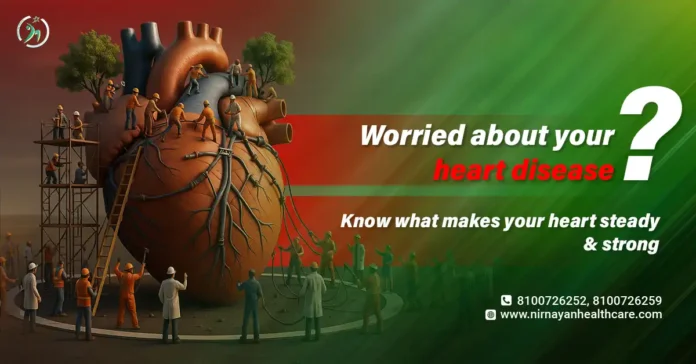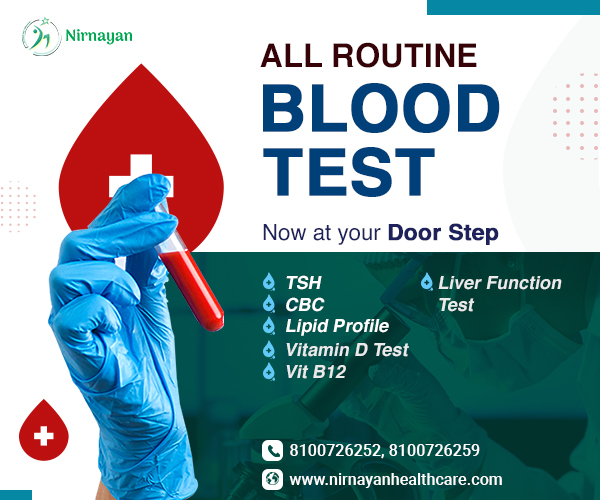Cardiovascular disease (CVD) is one of the leading causes of death worldwide and can become life-threatening if ignored or left untreated. CVDs often require urgent medical attention, and while they can affect individuals of all age groups, certain risk factors make some people more vulnerable. Globally, the number of patients suffering from heart diseases has risen dramatically. In India, recent surveys have shown that approximately 11% of all deaths are caused by CVDs — a figure notably higher than that in many other countries. Alarmingly, many individuals remain unaware of their heart conditions until symptoms become severe and demand immediate care.
What Are Cardiovascular Diseases?
Cardiovascular diseases refer to a group of disorders affecting the heart and blood vessels. In the early stages, CVDs may not cause noticeable symptoms, but as they progress, they can lead to serious complications such as shortness of breath, chest pain, or fatigue.
Common types of heart diseases include:
- Heart Attack
- Heart Failure
- Hypertension (High Blood Pressure)
- Stroke
- Coronary Artery Disease (CAD)
- Heart Blockage
- Arrhythmias
- Peripheral Artery Disease (PAD)
Types of Cardiovascular Diseases:
CVDs encompass a wide range of conditions, each affecting heart health differently:
Coronary Artery Disease (CAD): The most common type of CVD, CAD occurs when arteries become narrowed or blocked by plaque buildup, reducing blood flow to the heart. This can cause chest pain (angina), heart attacks, or even sudden cardiac arrest.
Arrhythmias: Irregular heart rhythms — the heartbeat may be too fast, too slow, or erratic.
Heart Valve Diseases: These occur when one or more of the heart’s valves are damaged or fail to function properly.
Congenital Heart Disease: A condition present from birth, caused by structural defects in the heart or major blood vessels. Severe cases may require surgery or lifelong medical care.
Stroke and Cerebrovascular Diseases: Often included under cardiovascular disorders, these occur when blood flow to the brain is blocked or interrupted — either by a clot (ischemic stroke) or bleeding (hemorrhagic stroke).
Heart Failure: A condition where the heart cannot pump blood efficiently. Symptoms include shortness of breath, swelling, and fatigue. It may develop as a result of high blood pressure, CAD, or damaged heart muscles.
Common Symptoms of Cardiovascular Diseases:
Since CVDs vary in type, their symptoms differ as well, with coronary heart disease. However, some common warning signs include:
- Shortness of breath
- Chest pain or pressure, often accompanied by sweating
- Irregular or rapid heartbeat
- Fatigue and weakness
- Dizziness or fainting
- Pain, cramping, or numbness in the limbs
Additional symptoms by type include:
- Coronary Artery Disease: Chest tightness or heaviness, breathlessness, tingling or coldness in arms or legs.
- Arrhythmias: Palpitations, light-headedness, fainting spells, rapid or unusually slow heartbeat.
- Congenital Heart Defects: Bluish or greyish skin tone, swelling in legs or around the eyes, poor weight gain in infants, or excessive fatigue during activity.
Causes and Risk Factors of Heart Diseases:
While specific causes vary by type, several common factors increase the risk of developing CVD:
- High cholesterol levels
- High blood pressure (Hypertension)
- High blood sugar (Diabetes)
- Obesity and poor diet
- Family history of heart disease
- Chronic Kidney Disease (CKD)
- Preeclampsia during pregnancy
- Smoking and alcohol abuse
- Sedentary lifestyle and lack of exercise
- Stress and inadequate sleep
Lifestyle-related causes include:
- Unhealthy diet: High-fat, high-calorie foods rich in cholesterol increase cardiac risk.
- Smoking: Damages blood vessels and significantly raises the likelihood of a heart attack or stroke.
- Excessive alcohol consumption: Leads to irregular heartbeat, hypertension, and heart muscle damage.
- Physical inactivity: Contributes to obesity, high blood pressure, and poor cardiac function.
How to Reduce the Risk of Cardiovascular Diseases:
Prevention begins with healthy lifestyle choices. Simple, consistent habits can significantly lower your risk.
- Adopt a heart-healthy diet: Include fruits, vegetables, lean proteins, and whole grains. Avoid trans fats, processed sugars, and excessive salt.
- Quit smoking and limit alcohol consumption. Both are major contributors to heart disease and other chronic conditions.
- Stay physically active: Regular exercise improves circulation, reduces cholesterol, and helps maintain a healthy weight.
- Monitor blood pressure, blood sugar, and cholesterol: Early detection and treatment prevent long-term complications.
- Manage stress and get adequate sleep: Chronic stress and poor sleep can increase heart disease risk.
Regular Health Check-ups:
Routine blood tests play a key role in assessing heart health and overall well-being. It is advisable to monitor your blood sugar levels, cholesterol levels, and lipid profile, among other parameters, to understand your current cardiac status.
If you experience any discomfort or unusual symptoms, consult a cardiologist promptly. Based on their advice, you may need further diagnostic evaluations such as a CT scan, Echocardiogram (ECHO), or Electrocardiogram (ECG) to identify potential heart-related conditions.
These preventive measures and timely screenings can help safeguard your heart and significantly reduce the risk of developing cardiovascular diseases.
For accurate and reliable diagnostic support, choose Nirnayan Health Care—the best pathology lab in Kolkata—offering advanced testing facilities, cutting-edge technology, and expert diagnostic care to ensure your heart health is always in good hands.
When to See a Doctor:
Early diagnosis can save lives. Consult a doctor immediately if you experience:
- Chest pain, heaviness, or tightness during activity
- Sudden shortness of breath
- Dizziness or fainting spells
- Pain or numbness in arms, legs, jaw, or neck
- Unexplained fatigue or swelling in limbs
Conclusion:
Cardiovascular diseases are increasingly affecting individuals of all ages, often without early symptoms. Paying attention to your heart health, maintaining a balanced lifestyle, and seeking timely medical care can make all the difference. Remember — every heartbeat matters, and early action can save your life.




